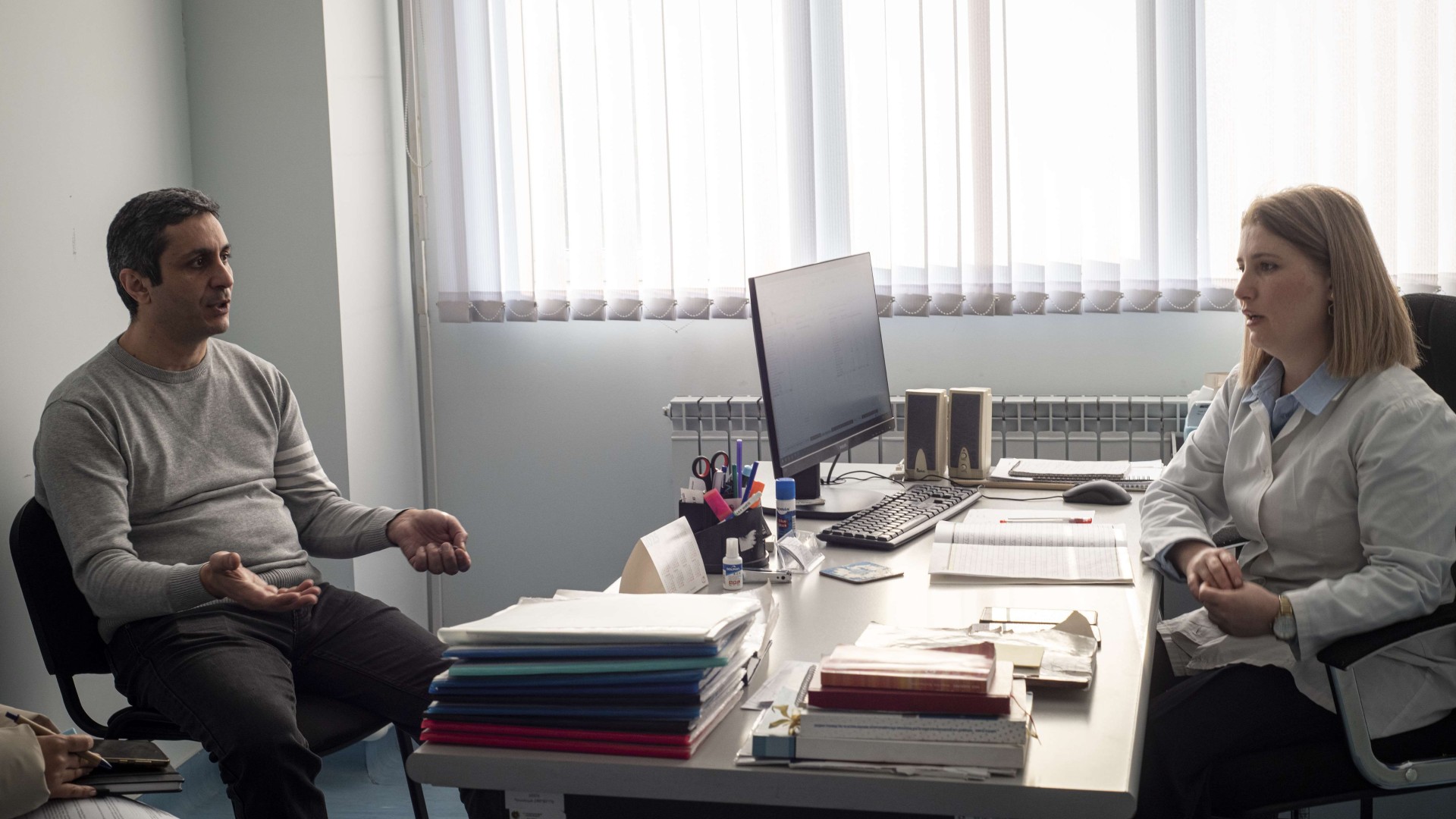At 21 years old, Armen is a student and an aspiring entrepreneur with big dreams of having his own thriving marketing business. He is self-driven, ambitious and full of ideas; but he also has a strong desire to protect his health and challenge the stigma surrounding vulnerable groups in Armenia.
“I first heard about pre-exposure prophylaxis (PrEP) on social media,” Armen recalls. “It was very general information, nothing too detailed. But it caught my attention – I wanted to know more.”
PrEP is the use of antiretroviral drugs by HIV-negative people to prevent HIV infection and is key to helping meet global HIV targets by 2030. PrEP is effective against HIV but does not protect against other sexually transmitted infections (STIs), so condom use remains important. WHO recommends a client-centred approach to PrEP delivery integrated within universal health coverage, linking it with broader health services like STI management, reproductive health, mental health and substance use support.
Curious and determined, Armen reached out to New Generation NGO, a local humanitarian organization in Armenia. “They explained everything,” he says. “How to take it, when to take it – and the most important part – it’s completely free of charge.” For Armen, PrEP was not just a medication, it was a source of confidence and security. “I feel safer using it,” he shares.
Armen’s journey does not stop with his own health. “I share all I know about PreP with my friends and those who are interested in knowing more about this,” he says. He believes society needs to change too: “I wish people could change the way they treat and think about others, especially vulnerable populations. We all deserve to feel safe and accepted”.

Armen, 21 years old, is an Armenian student and aspiring entrepreneur who is also a PrEP user. He advocates for health and fighting stigma surrounding vulnerable groups in Armenia. Credits: WHO
Updated national PrEP guidelines
Armen’s story is part of a larger initiative. With guidance from WHO and support from the Joint United Nations Programme on HIV/AIDS (UNAIDS) in Armenia, the Ministry of Health recently updated its national PrEP guidelines, ensuring more people like Armen can access life-saving prevention methods without barriers and with public funding. This demonstrates the country’s commitment to addressing the needs of vulnerable people.
“As part of the country’s efforts to eliminate HIV as a public health threat and advance universal health coverage in Armenia, the Ministry of Health prioritizes implementation of PrEP for HIV prevention, especially among key populations. Therefore, we have updated the national PrEP guidelines in line with the recent WHO recommendations to facilitate a unified, evidence-based and people-centred approach to HIV prevention for all those who are at increased risk of HIV infection and who request PrEP services,” says Inessa Asmangulyan, Team Manager, Global Fund Project Coordination, Ministry of Health.
Vardan Arzakanyan, Head of the HIV Surveillance and Counselling Department, National Centre for Infectious Diseases recalls, “The technical support we received from WHO and its experts in updating the guidelines was really of immense help. Their feedback and recommendations were remarkably clear, practical and perfectly aligned with our country’s needs and legal framework. It was truly a pleasure collaborating with them”.

Vardan Arzakanyan, Head of the HIV Surveillance and Counselling Department, National Centre for Infectious Diseases, and Hermine Hovakimyan, Head of the Outpatient Clinic of the National Centre for Infectious Diseases, are grateful for the support provided by WHO and its experts. Credits: WHO
Widening access to PrEP services
WHO support for updating the national PrEP guidelines was conducted as part of the WHO/Europe project “Sustainability of services for key populations in the region of eastern Europe and Central Asia” (SoS project 2.0). The project was implemented by a consortium of organizations led by the Alliance for Public Health in partnership with the civil society organization “100% Life”, with financial support from the Global Fund to Fight AIDS, Tuberculosis and Malaria.
UNAIDS Armenia Country Director, Rosa Babayan, says: “The work carried out by national partners to revise the PrEP protocol in line with the latest WHO recommendations has enabled the expansion and enhancement of PrEP services, widening access across the country for anyone who needs it”.
The new guidelines, approved in November 2024, align with global standards, reinforcing Armenia’s commitment to ending AIDS as a public health threat.
“Everyone everywhere has the right to quality health-care services in the fight against HIV and AIDS. With human rights at the centre and with communities in the lead, the world can end AIDS as a public health threat by 2030,” emphasized Dr Siddhartha Datta, WHO Representative in Armenia.
For Armen, the future looks promising, not only for his marketing business, but also as Armenia is working to ensure equitable access to health-care services, showing compassion for everyone’s needs. He concludes, “If more people knew about PrEP, and if we treated each other with kindness instead of judging, we’d all feel safer, healthier and freer to chase our dreams”.



